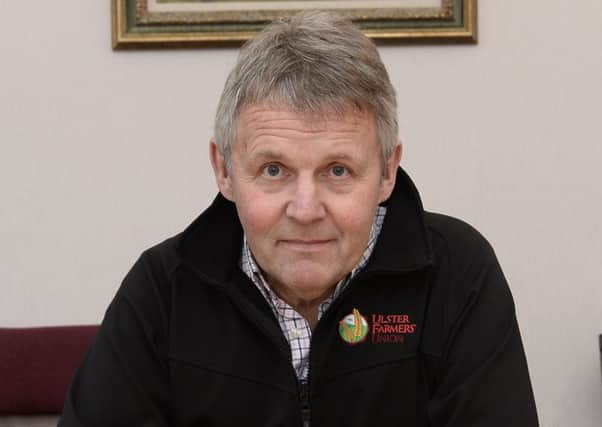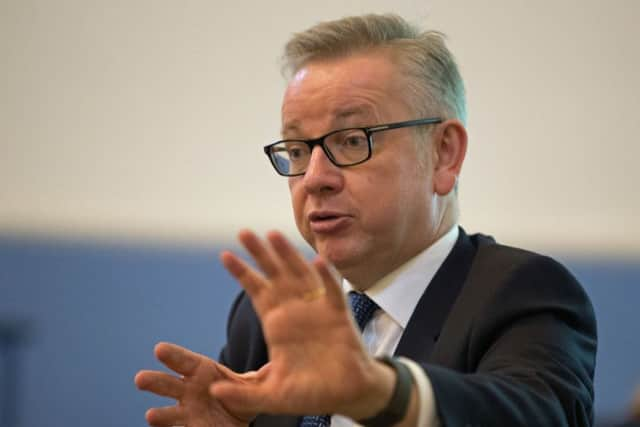UFU warning over farm subsidy plans


UFU president Barclay Bell issued the warning in reaction to a speech made by Environment Secretary Michael Gove in Oxford.
Mr Gove said farming subsidies will eventually be replaced by payments for “public goods” which could include things like boosting access to the countryside or recreating wildflower meadows.
Advertisement
Hide AdAdvertisement
Hide AdSetting out plans for the way farming subsidies will be dealt with after Brexit, Mr Gove said the government would guarantee payments at the current EU level until 2022.


But Mr Bell said: “Farmers can deliver environmental goods but if funding is not there to support food security, the UK’s reliance on imported food will increase.”
He added: “This would undermine local food production and drive down food and environmental standards.”
The general reaction in Northern Ireland to Mr Gove’s comments was mixed.
Advertisement
Hide AdAdvertisement
Hide AdDUP MEP Diane Dodds welcomed the commitment to continue subsidies until 2022.


“We specifically sought this assurance to bring certainty to the industry,” she said.
She warned, however, that “the devil is in the detail”.
Both the DUP and the UUP emphasised the importance of making clear how the changes outlined by Mr Gove would apply in Northern Ireland, given the absence of a devolved government here.
Mrs Dodds said: “While the DEFRA secretary made direct reference to practical changes for England, Northern Ireland civil servants will require direction as to how they would implement agriculture policy going forward.”
Advertisement
Hide AdAdvertisement
Hide AdThe DUP MEP continued: “We want Northern Ireland to have the flexibility under devolution to shape this policy area but we need a functioning Executive. Unfortunately, due to the ongoing intransigence of Sinn Fein, local farmers are left without a local voice and the ability to take decisions.”
UUP leader Robin Swann expressed a similar view. He said: “His comments only specifically referred to those in England so it is essential that this commitment is also quickly made for farmers in Northern Ireland. This is something I fear the ongoing absence of a minister or local Executive will likely delay.”
Mr Swann also criticised the DEFRA secretary’s comments on “efficiency”.
“His comment that paying farmers for the amount of land they have is ‘unjust, inefficient and drives perverse outcomes’ was especially galling,” the UUP leader said.
Advertisement
Hide AdAdvertisement
Hide Ad“In fact it’s grossly offensive as he is effectively labelling all farmers inefficient, when in reality the UK has some of the most efficient farms and farming techniques in the world.”
UUP MEP Jim Nicholson raised similar concerns to those of UFU president Mr Bell on the idea of ‘public goods’ payments.
“Mr Gove’s proposal to move away from an area based subsidy payment to ‘public money for pubic goods’ will prove to be contentious, especially for farmers in Northern Ireland,” Mr Nicholson said.
“While this proposal may work for the large arable farms in England, it may not be best suited for the farming system operating in Northern Ireland.”
Mr Bell also welcomed Mr Gove’s pledge to continue subsidies until 2022, saying: “The funding farmers receive is not a luxury.”